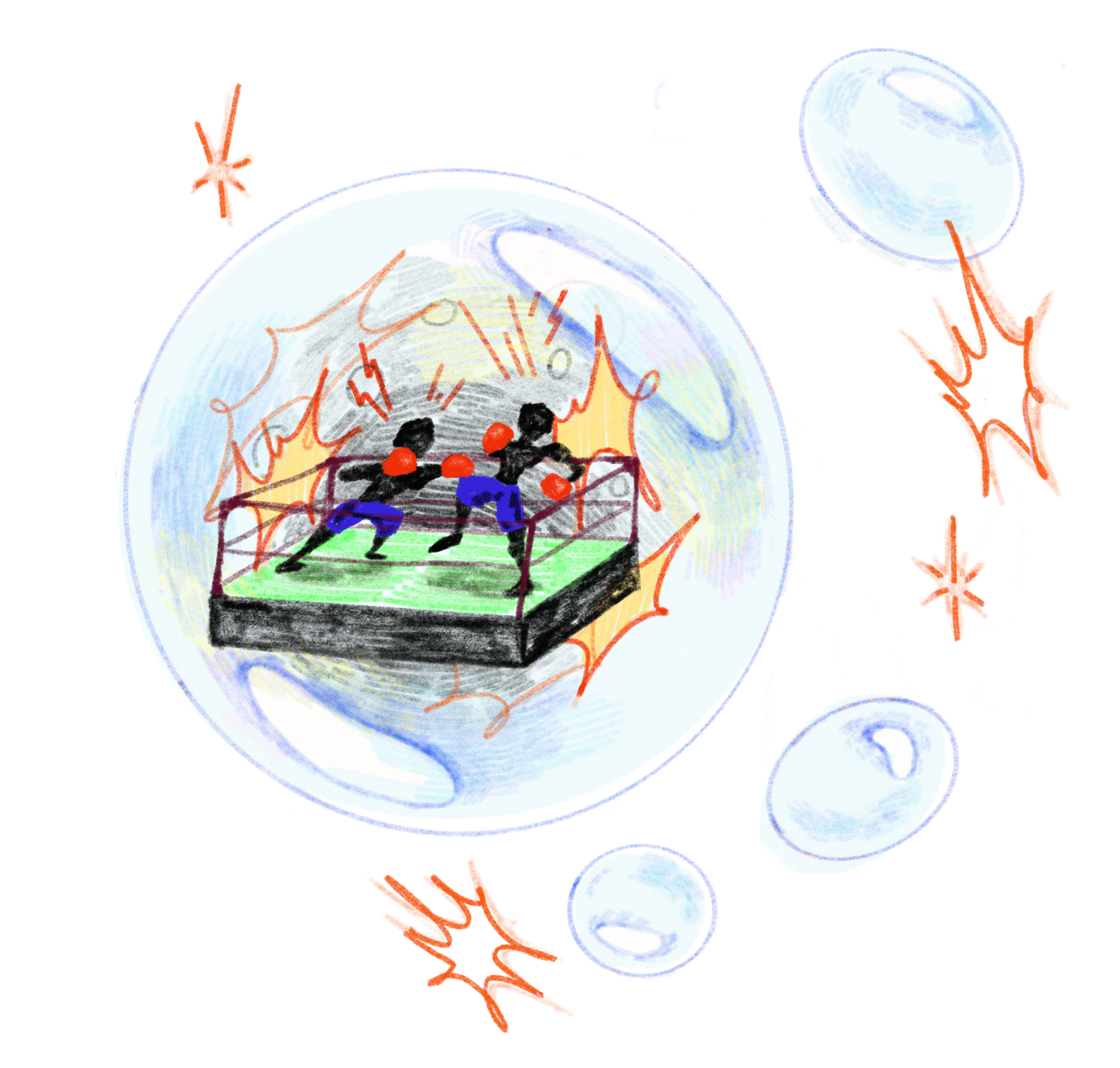Before Ultimate Fighting Championship (UFC) competitor Driscus Du Plessis, a white Afrikaner, knocked out former Champion Robert Whittaker, he declared that he would be the “first real African champion, born, bred, and raised in Africa.” Immediately following the fight, then-reigning Middleweight Champion Israel Adesanya, a Black Nigerian, was ushered into the cage. In front of a sold-out stadium of 19,204 fans, Adesanya confronted Du Plessis, shouting, “Yeah my African brother, let’s go n—–, let’s go n—–.”
This grandstanded racial quarrel was not an unprecedented shock for the UFC. The company implicitly encourages such moments by repackaging them into clippable promotional materials. When a reporter asked about the potential “racial undertones” of the Du Plessis-Adesanya spat, UFC President and CEO Dana White shut down the question, saying, “What were the racial undertones?… Who gives a shit … this is the fight business.”
Presenting this episode between Adesanya and Du Plessis as standard UFC fare to a vast international audience exemplifies the sport’s culture of not only tolerating but profiting from expressions of racial conflict, homophobia, misogyny, and bigotry. A clip of the interaction between Adesanya and Du Plessis has garnered over two million views on YouTube; had the fight been made, the exchange would have been effortlessly turned into the UFC’s promotional storyline. Being a bubble for fringe, manosphere-esque intolerance has become the UFC’s cultural signature—even as the company becomes increasingly mainstream and globalized.
The UFC is unique as a $12 billion sporting franchise that allows for occurrences like a fighter calling crowd members homophobic slurs to go without official reprimand. In another incident, a fighter asked his upcoming Nigerian opponent if he had gotten “smoke signals” from “his tribe.” When Dana White was asked about the exchange, he proclaimed that he does not “muzzle anybody.” In contrast, the NBA abides by a “zero-tolerance” policy for hateful fan behavior, and four Ligue 1 soccer players were recently given suspensions after participating in homophobic stadium chants. The UFC, with its informal “no muzzles” policy and intentionally inflammatory promotional tactics, presents itself as an anti-woke haven from the mores of cancel culture.
These patterns of platforming hate are allowing mixed martial arts (MMA) to become a vehicle for bigotry outside of the fighting cage. Across Europe, neo-Nazi groups have taken advantage of the MMA community to extend their reach from the cultural margins into the mainstream. Chechen dictator Ramzan Kadyrov is known for being photographed with UFC fighters and hosting them at his gym as part of his upbeat public image, which obscures human rights offenses like his persecution of LGBTQ+ Chechens.
The meteoric growth of the UFC is taking these harmful ideologies along for the ride, exposing a growing constituency of younger male fans to sentiments like Middleweight Champion Sean Strickland proclaiming: “We need to go back to taking women out of the workforce.” For young men, sports and sanctioned violence often provide a sense of recognition, community, and a destructive brand of masculinity closely connected to violence and physicality that they can ascribe to themselves. When newer audiences are drawn into the UFC fandom, they are inevitably exposed to a space where far-right, misogynistic ideas freely circulate. For instance, many UFC fans openly cheered at fighter Dillon Danis’ relentless harassment of Logan Paul’s fiancée Nina Agdal, including his posting of explicit photos of Agdal.
Formal written policy cannot void toxic social norms. For MMA to thrive as a sport, the UFC must progress to a consistent standard where the most explicit examples of hatred or injustice are met with both the informal punishment of community outrage and formal reprimand from the organization—whether that be in the form of fines, suspension, or expulsion.
Although the UFC is far from having the needed cultural groundwork, the company ought to imitate other sporting bodies that are at least progressing toward standards of accountability and a culture of recognizing injustice. One can look to the case of former Royal Spanish Football Federation President Luis Rubiales, who was barred by FIFA and drowned in international condemnation after forcibly kissing a female player. Rubiales ultimately stepped down. Such lines of unacceptability are desperately needed in the UFC. The appeal of the sport ought to be the chance to see world-class striking, grappling, and wrestling, not displays of unpunished vitriol repackaged as entertainment.
